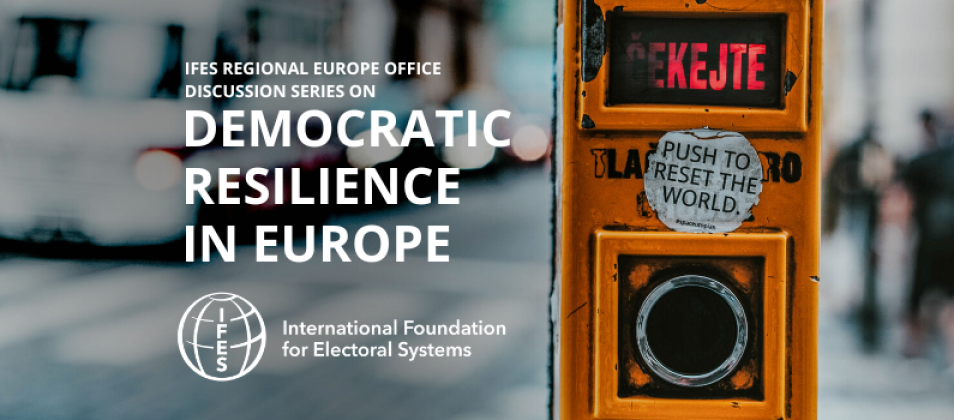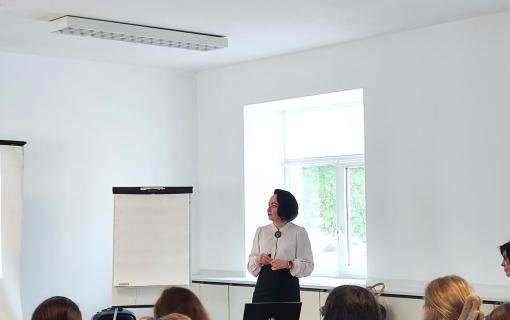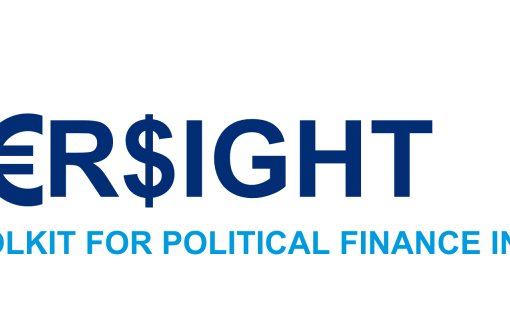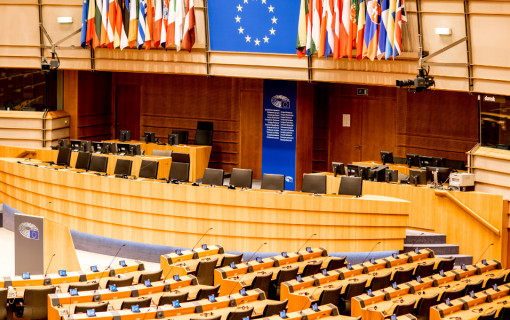
Malign Kremlin Influence on Democratic Institutions, the Case of the Czech Republic and Implications for Central Europe
On June 28, the International Foundation for Electoral Systems’ (IFES) Regional Europe Office hosted the 20th installment of its discussion series Democratic Resilience in Europe on Kremlin influence on Central European democracies, highlighting the case of the Czech Republic. The panel brought together experts including Veronika Vichova, Deputy Director for Analysis and Head of the Kremlin Watch Program, European Values Center for Security Policy, Czech Republic; Kristyna Bagge, Analyst on Russian Disinformation, Semantic Vision, Czech Republic; Rasto Kuzel, Executive Director, MEMO 98, Slovakia; Kevin Sheives, Associate Director, International Forum for Democratic Studies, National Endowment for Democracy, U.S.; and Matt Bailey, Senior Cyber and Information Integrity Advisor, IFES. The discussion was moderated by Dr. Magnus Öhman, IFES’ Senior Political Finance Adviser and Regional Europe Office Director. The session examined current challenges to democracy in the region and put forward solutions and specific areas of work in Central and Eastern Europe.
Current threats
The discussants highlighted that, alongside the Russian invasion of Ukraine, malign influence originating from the Kremlin has intensified across the region. Civic challenges – from political polarization to poor infrastructure maintenance – are being amplified by Russian action in both cyberspace and domestic politics.
Russia exhibits a striking ability to highlight growing disagreements within societies and expand political cleavages, in attempts to weaken a unified European response and diminish trust in democratic institutions. Disinformation makes its way into major news outlets very quickly but is increasingly microtargeted towards specific groups, such as minorities, refugees and women. The Kremlin also employs sophisticated tactics in elite capture mechanisms through the direct or indirect recruitment of domestic politicians in the region to amplify propaganda and serve its national and European interests.
Infrastructure in Central Europe has long been at risk; heavy deployment of malware attacks against both digital and physical infrastructure, ranging from Distributed Denial of Service (DDoS) attacks to sabotage of cellphone towers, has increased. Nations across the region heavily rely on Russian energy resources, which has been and will again be used as political leverage. Furthermore, the spread of Russian narratives on television and radio remains crucial for delivering the Kremlin’s message and mobilizing the population to assume an anti-Ukraine stance. Data availability has made public surveillance easier (such as tracking people’s location based on their cell phone data), rendering many digital services potentially harmful.
The panelists also noted that the inevitability of “Ukraine fatigue” – indifference to the constant news stories on the ongoing war – could work in the Kremlin’s favor as Europeans shift their focus towards other issues, such as inflation.
Solutions
The panelists agreed that maintaining a unified European response is key to building resilience against Kremlin influence. Their proposed solutions included:
- Focus on state sovereignty in strategic communication, emphasizing how the Russian invasion is not just a threat to Ukraine and the European Union, but the sovereignty of each individual state within the Union;
- Establish national frameworks for crisis communication, running operations that deliver solutions immediately (e.g., rapid and reliable information delivery) and for the long-term (strengthening media and digital literacy);
- Maximize the role of civil society in producing innovative approaches and building public trust, and allocate more resources, including funding to nongovernmental organizations NGOs and independent journalists;
- Learn from the experience of Ukraine and the Central Europe region; and
- Maintain critical infrastructure, especially in the energy sector. This also implies safeguarding backups for digital systems, to ensure continuity of operations in any scenario.
Current developments
Before closing the session, the panelists discussed current developments in the region:
- In the Czech Republic, local organizations are helping relocate Ukrainian media and find safe spaces, provide technical and financial assistance, and support said media in continuing to report on Ukraine from Europe;
- The International Forum for Democratic Studies is establishing a risk-tolerant global approach to funding independent media and countering disinformation, including fact-checking, while also pushing investors to agree to media investments that might not yield financial profits;
- Semantic Visions, a private analytics firm based in Prague, is identifying shifts in disinformation campaigns and conducting extensive research on what topics, patterns or societal cleavages are convenient to be picked by the Kremlin;
- Memo 98, a media monitoring organization based in Slovakia, has developed a large network of media analysts to compile regular newsletters on the latest Russian disinformation trends and debunk them. A future plan entails distributing the said newsletter to the people of Russia through various popular media channels; and
- IFES is pushing for higher-risk approaches and innovation in disinformation counter-operations, partnering with international high-tech companies, while also cooperating with transnational networks to take on bigger and more ambitious tasks to ensure democratic transparency.
Watch the full event below:
Published July 21, 2022.









